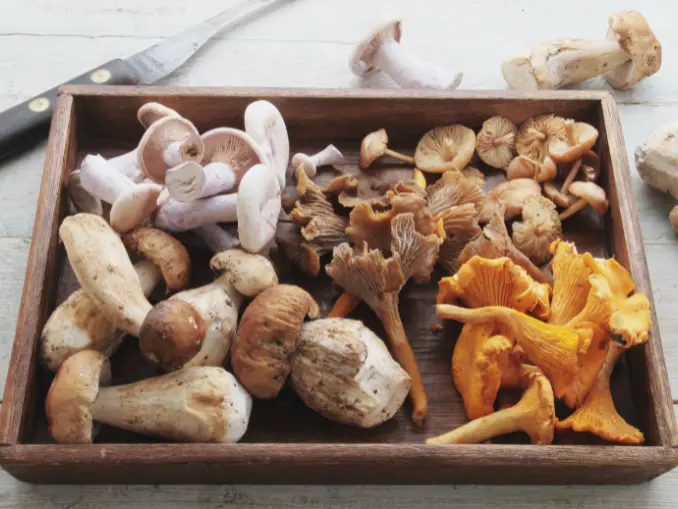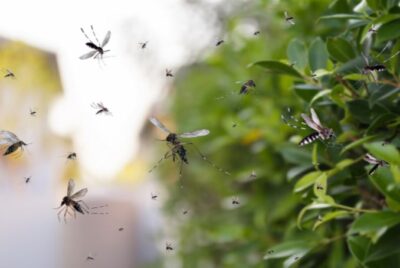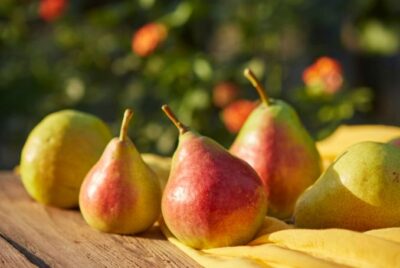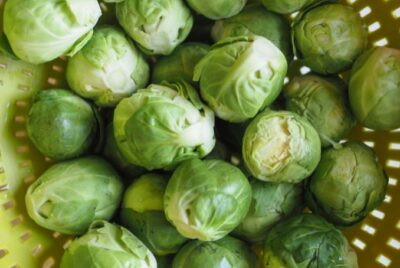Can Chickens Eat Mushrooms? Tips for Healthy Poultry Feeding
Chickens are known for their omnivorous appetites, pecking at various foods they encounter in their surroundings. As a poultry enthusiast, you’ve likely pondered whether it’s safe to include mushrooms in your chickens’ diet.
While mushrooms are a common ingredient in human dishes, they come in various shapes and sizes, and not all are suitable for our feathered friends. In this article, we will explore the world of mushrooms, discuss their potential benefits, and uncover the hidden risks associated with feeding mushrooms to chickens.
By the end of this read, you’ll clearly understand whether mushrooms should find a place on your chicken’s menu.
Can Chickens Eat Mushrooms and Is It Good for Them?
Yes, chickens can eat mushrooms, and it can be good for them when incorporated into their diet in moderation. However, it’s crucial to exercise caution when you serve mushrooms to chickens. You should only offer your chickens edible mushrooms suitable for human consumption and avoid giving wild mushrooms, which can be toxic.
Additionally, mushrooms should make up a small part of a chicken’s diet, as a balanced diet for chickens typically includes grains, vegetables, and other protein sources. When introducing mushrooms to your flock, you must observe their preferences, as some chickens may enjoy them more than others.
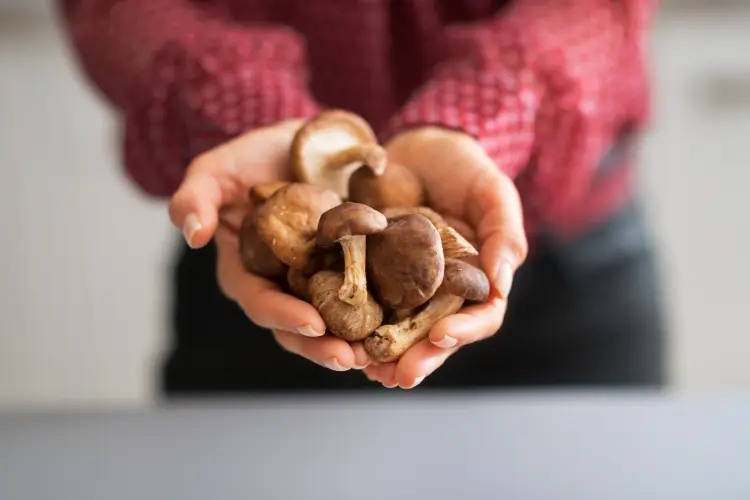
Do Chickens Actually Like Eating Mushrooms?
Chickens’ liking for mushrooms varies among individuals. While some chickens may prefer mushrooms and readily consume them, others may not exhibit a strong interest.
However, chickens typically don’t actively seek out mushrooms on their own. Chickens are more likely to forage for insects, seeds, grains, and vegetation in their natural environment.
However, if you choose to introduce mushrooms into their diet, it’s essential to do so cautiously, following the guidelines to ensure their safety and well-being.
Mushroom Nutritional Value
- Low in Calories
- Low in Sugar
- Protein
- Vitamin B12
- Vitamin D
- Low in Fat:
- Cholesterol-Free
- Low in Sodium
- Low in Carbohydrates
Varieties of Mushrooms That Are Safe for Chickens
The types of mushrooms that are generally safe for chickens to consume include:
- Button Mushrooms
- Oyster Mushrooms
- Shiitake Mushrooms
- Maitake Mushrooms
- Cremini Mushrooms
- Portobello Mushrooms
- Lion’s Mane Mushrooms
- Porcini Mushrooms
- Black Trumpet Mushrooms
- Morel Mushrooms
- Reishi Mushrooms
- Chicken of the Woods Mushrooms
- Matsutake or “Pine” Mushrooms
These mushroom varieties are generally considered safe for chickens when provided in moderation and when fresh, clean, and free from molds or contaminants.
Always ensure that any mushrooms you offer to your chickens are safe for human consumption, and observe their reactions to determine their preferences and ensure their well-being. Avoid wild mushrooms, as some can be toxic to chickens.
Read also: Best Plants to Grow as Chicken Feed Alternatives

Which is Better for Chickens: Cooked or Raw Mushrooms?
It is generally better for chickens to feed them cooked mushrooms rather than raw ones. While chickens can consume both raw and cooked mushrooms, there are some reasons why cooked mushrooms may be a preferred choice:
- Digestibility: Cooking mushrooms can break down their cell walls and make the nutrients more accessible and easier to digest for chickens. This can enhance the chickens’ ability to absorb the nutrients present in mushrooms.
- Safety: Cooking mushrooms at appropriate temperatures can help eliminate any potential pathogens or harmful microorganisms that might be present. Raw mushrooms or uncooked mushrooms can carry a higher risk of contamination, which cooking reduces.
- Texture: Some chickens may find the texture of cooked mushrooms more palatable than raw ones. Mushrooms can be tough and have a rubbery texture when raw, while cooking can soften them, making them more appealing to chickens.
- Flavor: Cooking can enhance the flavor of mushrooms, and chickens may be more likely to consume cooked mushrooms due to their improved taste.
However, it’s important to ensure that the mushrooms are cooked without added seasonings, salt, or other ingredients that might not be suitable for chickens.
Also, remember that mushrooms should only be a small part of a chicken’s diet, and their primary food should consist of balanced poultry feed and other appropriate dietary components.

How Many Mushrooms Should Chickens Have?
Chickens should be given mushrooms in moderation to supplement their regular poultry feed. The quantity of mushrooms can vary depending on factors such as the size of the mushrooms and the size and breed of the chickens.
As a general guideline, a few small mushrooms or a small portion of chopped mushrooms can be sufficient for a treat. It’s essential to observe the chickens’ reactions to mushrooms; some may enjoy them, while others may not show much interest.
Always remember that mushrooms should not replace their regular feed. They are specially formulated to provide all the essential nutrients. Instead, treats like mushrooms should complement their primary diet to maintain a balanced intake of nutrients and ensure their overall health and well-being.
Here’s How to Give Mushrooms to Your Chickens in a Way That’s Safe and Good for Them
- Only provide mushrooms that are safe for human consumption. Avoid wild mushrooms, as some can be toxic to chickens and humans. Stick to store-bought mushrooms or those you can confidently identify as safe.
- Wash mushrooms thoroughly to remove any dirt or contaminants. Chop or slice them into smaller, manageable pieces, especially large ones.
- Do not add any seasonings, salt, or other ingredients to the mushrooms before feeding them to chickens. Keep the treats plain and natural.
- Mushrooms should complement their primary diet, not replace it. Ensure chickens receive regular poultry feed formulated to provide all essential nutrients.
- Use fresh mushrooms and avoid those that are spoiled, moldy, or past their prime.
- Store mushrooms safely to prevent contamination and spoilage.
- Offer a variety of treats, including fruits, vegetables, and grains, to provide a well-rounded diet for your chickens.
Can Chickens Eat Mushroom Stems?
Yes, chickens can eat mushroom stems. Both the caps and stems of mushrooms are generally safe for chickens to consume. If you feed your chickens mushrooms, you can include both parts as part of their treat or supplement to their regular diet.
Can Chickens Eat White Mushrooms?
Yes, chickens can safely eat white mushrooms, also known as button mushrooms. White mushrooms are one of the safe mushroom varieties for chickens to consume. However, as with any treat or supplement, it’s important to offer them in moderation and ensure that the mushrooms are fresh, clean, and free from any contaminants.

Can Chickens Eat Wild Mushrooms?
No, chickens should not eat wild mushrooms. Wild mushrooms can be potentially toxic, and it can be hard to differentiate between safe and toxic varieties, even for humans. To ensure the safety and well-being of your chickens, it’s best to avoid feeding them any wild mushrooms. Stick to safe, store-bought mushroom varieties if you choose to include mushrooms in your chickens’ diet.
Read also: Can Chickens Eat Potato Skins? Benefits and Risks Explained
Chickens and Mushrooms Summary
While chickens can safely enjoy mushrooms as part of their diet, responsible feeding practices are paramount. Mushrooms offer nutritional value, but moderation is key, as they should only supplement their regular poultry feed. Cooked mushrooms are preferred for improved digestibility, and observing your flock’s preferences is essential. It’s crucial to steer clear of wild mushrooms due to potential toxicity risks.
By striking the right balance and prioritizing safety, you can provide your chickens with an enjoyable and healthy diet that complements their overall well-being.

